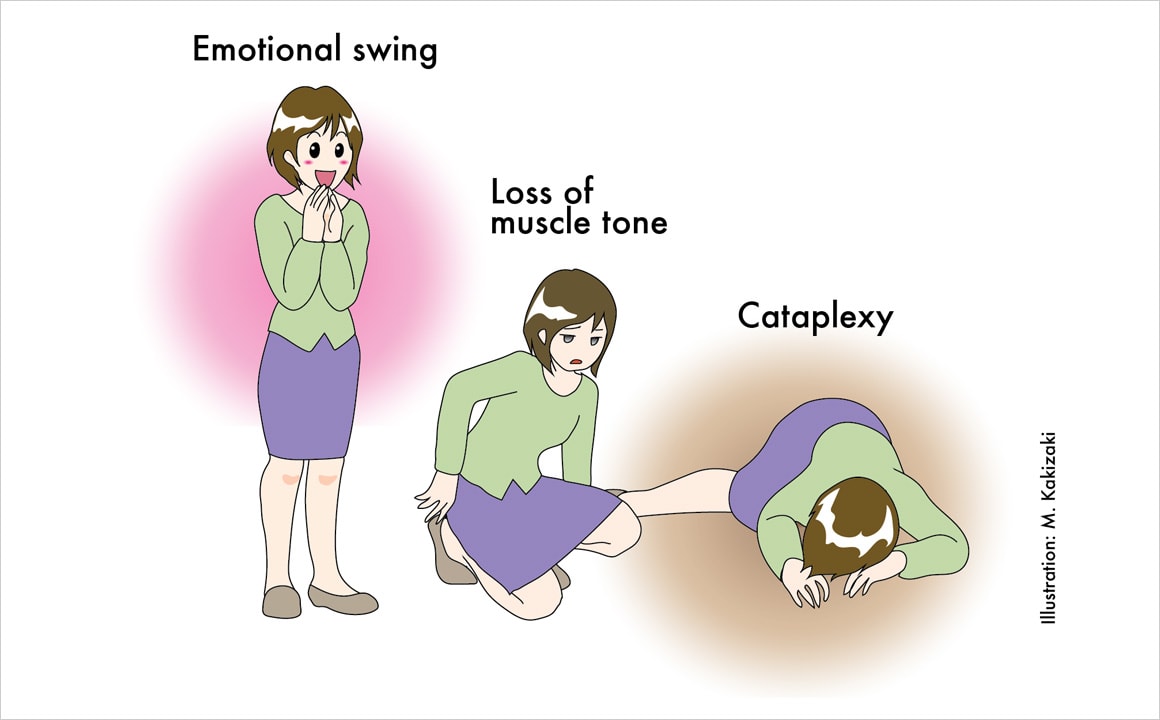

If necessary, you'll be referred to a sleep disorder specialist, who can confirm the diagnosis. You should see a GP if you think you may have narcolepsy so they can find out what's causing your symptoms. Narcolepsy is usually a long-term (chronic) condition, although some of the symptoms may improve as you get older. Symptoms may develop slowly over a number of years, or suddenly over the course of a few weeks. Some people have symptoms regularly, while others are less frequently affected. Not everyone with narcolepsy has the same symptoms. You can opt out of the register at any time. The NCARDRS helps scientists look for better ways to prevent and treat narcolepsy.
Cataplexy example registration#
If you or your child has narcolepsy, your clinical team will pass information about you or your child on to the National Congenital Anomaly and Rare Diseases Registration Service (NCARDRS). National Congenital Anomaly and Rare Diseases Registration Service These medicines are usually taken as daily tablets, capsules or drinkable solutions. If your symptoms are particularly troublesome, you may be prescribed medicine that can help reduce daytime sleepiness, prevent cataplexy attacks and improve your sleep at night. Keeping to a strict bedtime routine can also help, so you should go to bed at the same time each night whenever possible. This may be difficult when you're at work or school, but your GP or specialist may be able to devise a sleep schedule that will help you get into a routine of taking naps. Taking frequent, brief naps evenly spaced throughout the day is one of the best ways to manage excessive daytime drowsiness.

There's currently no cure for narcolepsy, but making changes to improve your sleeping habits and taking medicine can help minimise the impact the condition has on your daily life. This will usually involve staying overnight in a specialist sleep centre so various aspects of your sleep can be monitored. If necessary, you'll be referred to a specialist in sleep disorders, who'll analyse your sleep patterns. They may also carry out tests to help rule out other conditions that could be causing your excessive daytime sleepiness, such as sleep apnoea, restless legs in bed and kicking during sleep, or an underactive thyroid gland ( hypothyroidism). They may ask about your sleeping habits and any other symptoms you have. See a GP if you think you may have narcolepsy. The symptoms of narcolepsy often begin during adolescence, although it's usually diagnosed between the ages of 20 and 40. Men and women are thought to be affected equally by narcolepsy, although some studies have suggested the condition may be more common in men. It's difficult to know exactly how many people have narcolepsy because many cases are thought to go unreported.īut it's estimated to affect about 30,000 people in the UK.

excessive daytime sleepiness – feeling very drowsy throughout the day and finding it difficult to concentrate and stay awake.The brain is unable to regulate sleeping and waking patterns normally, which can result in: Narcolepsy is a rare long-term brain condition that causes a person to suddenly fall asleep at inappropriate times.


 0 kommentar(er)
0 kommentar(er)
